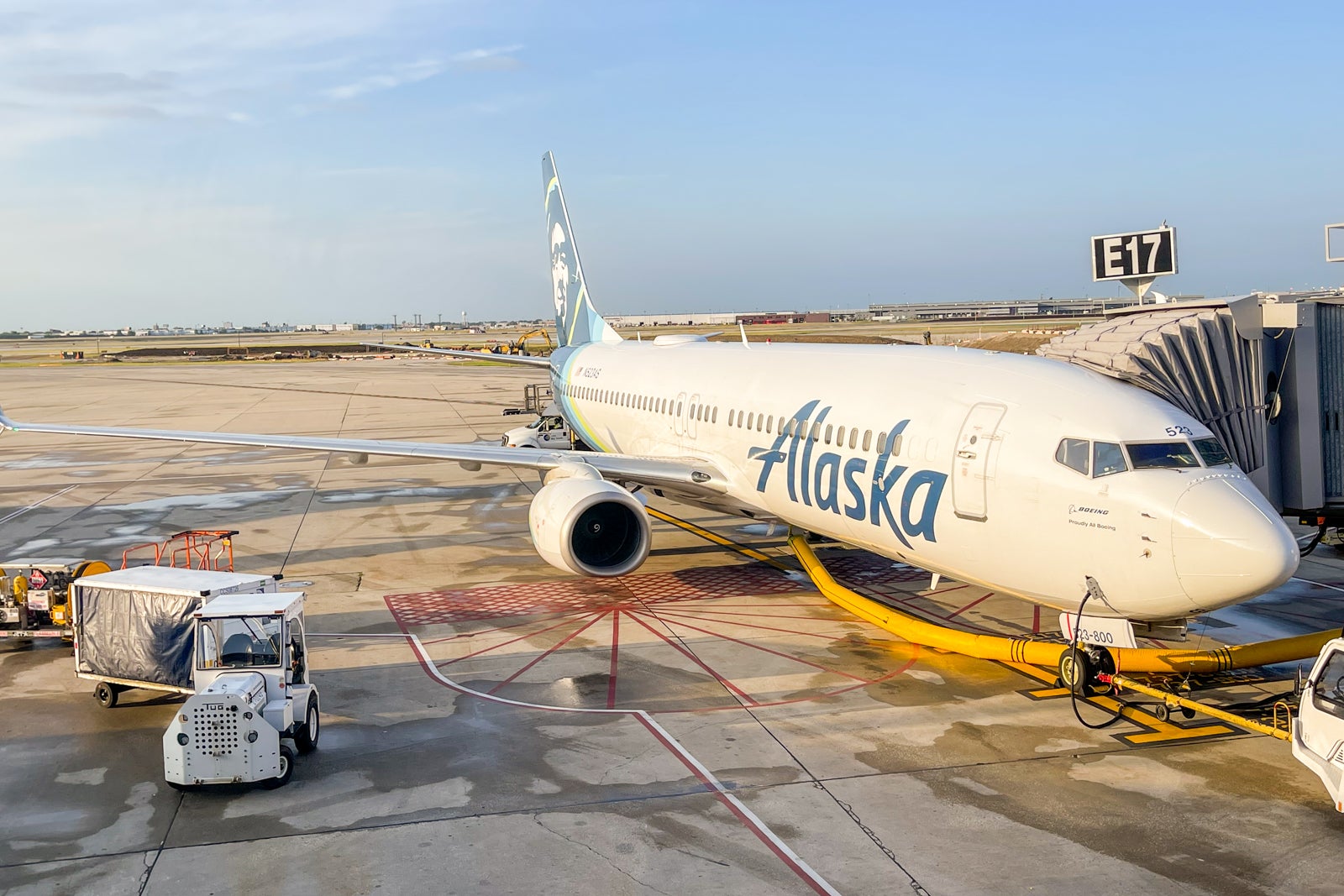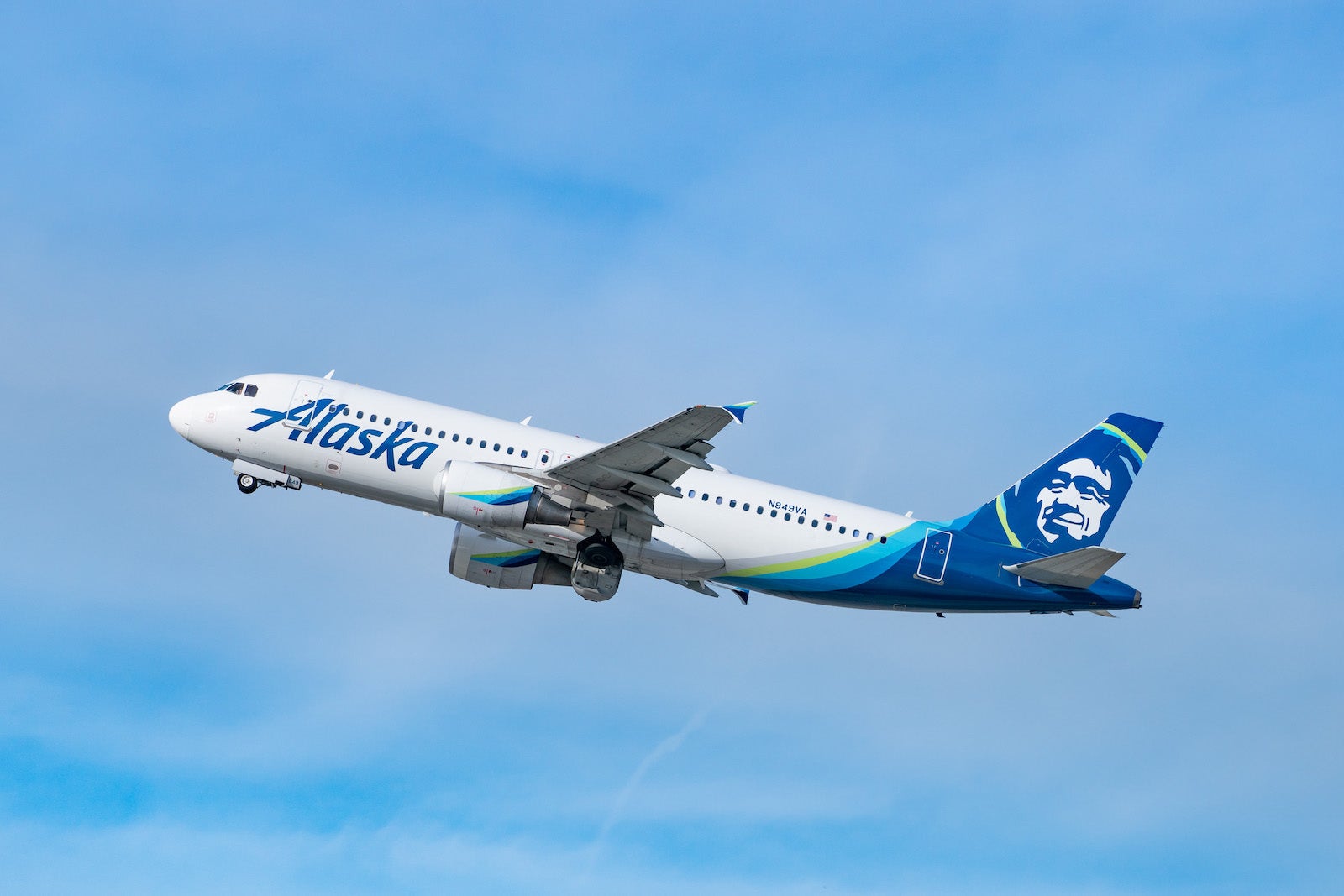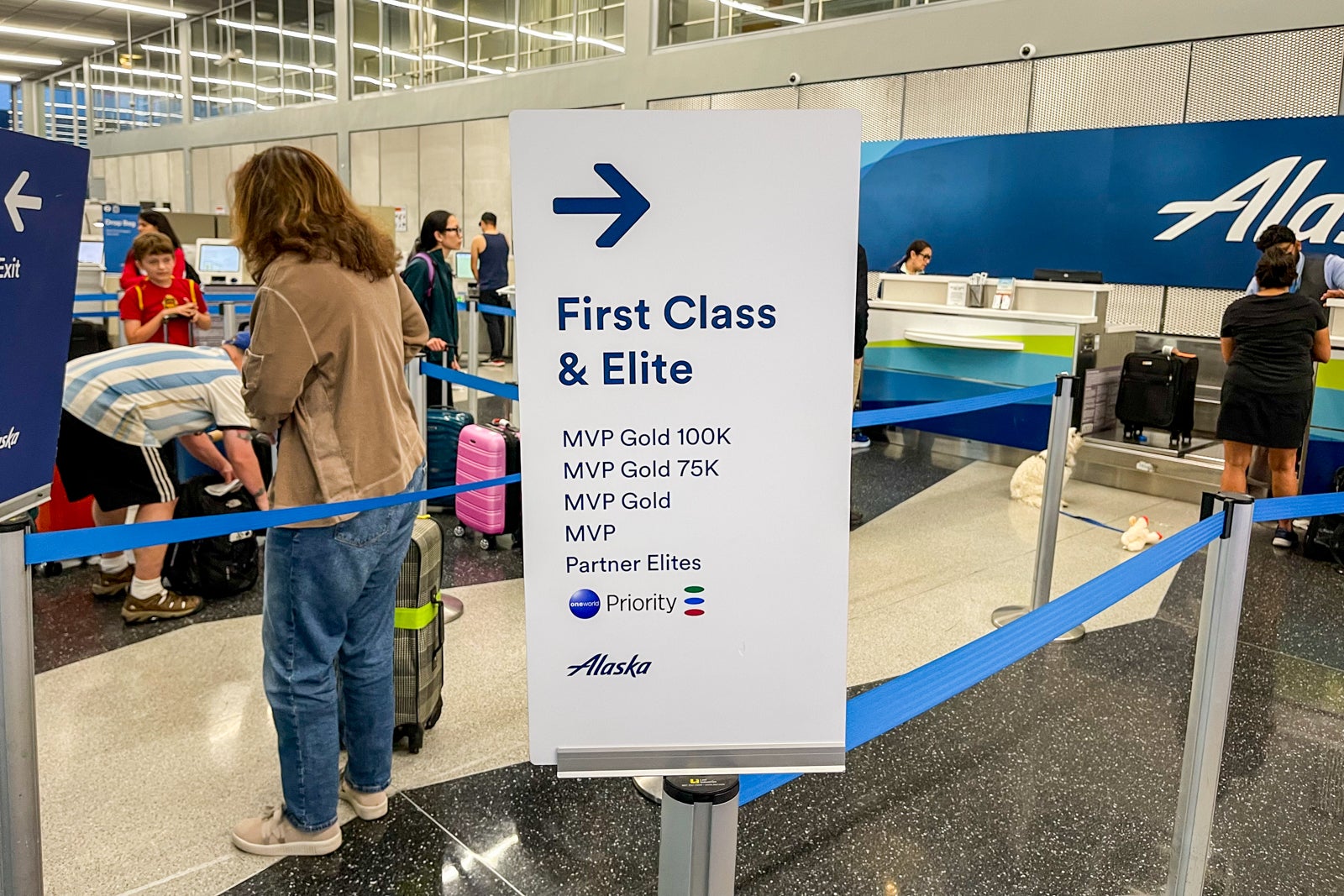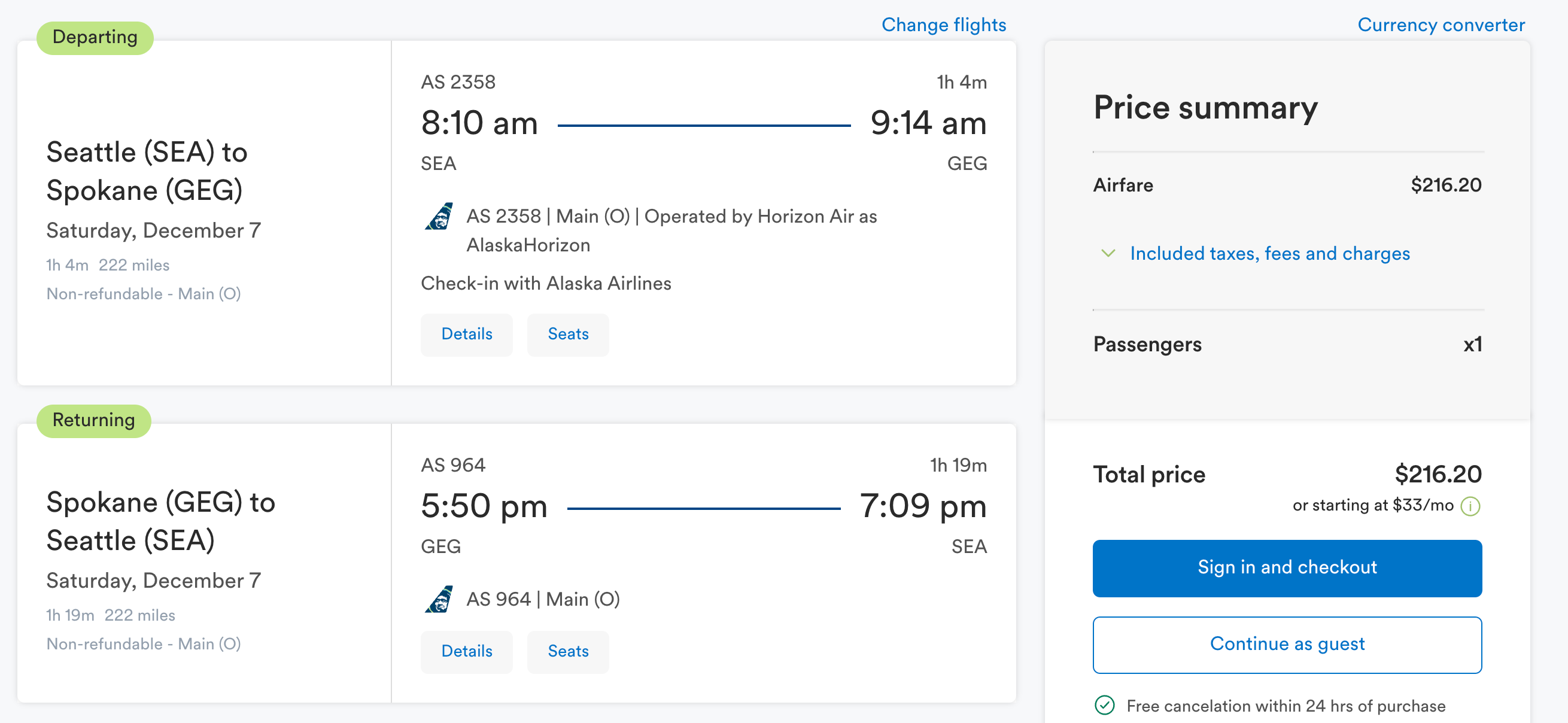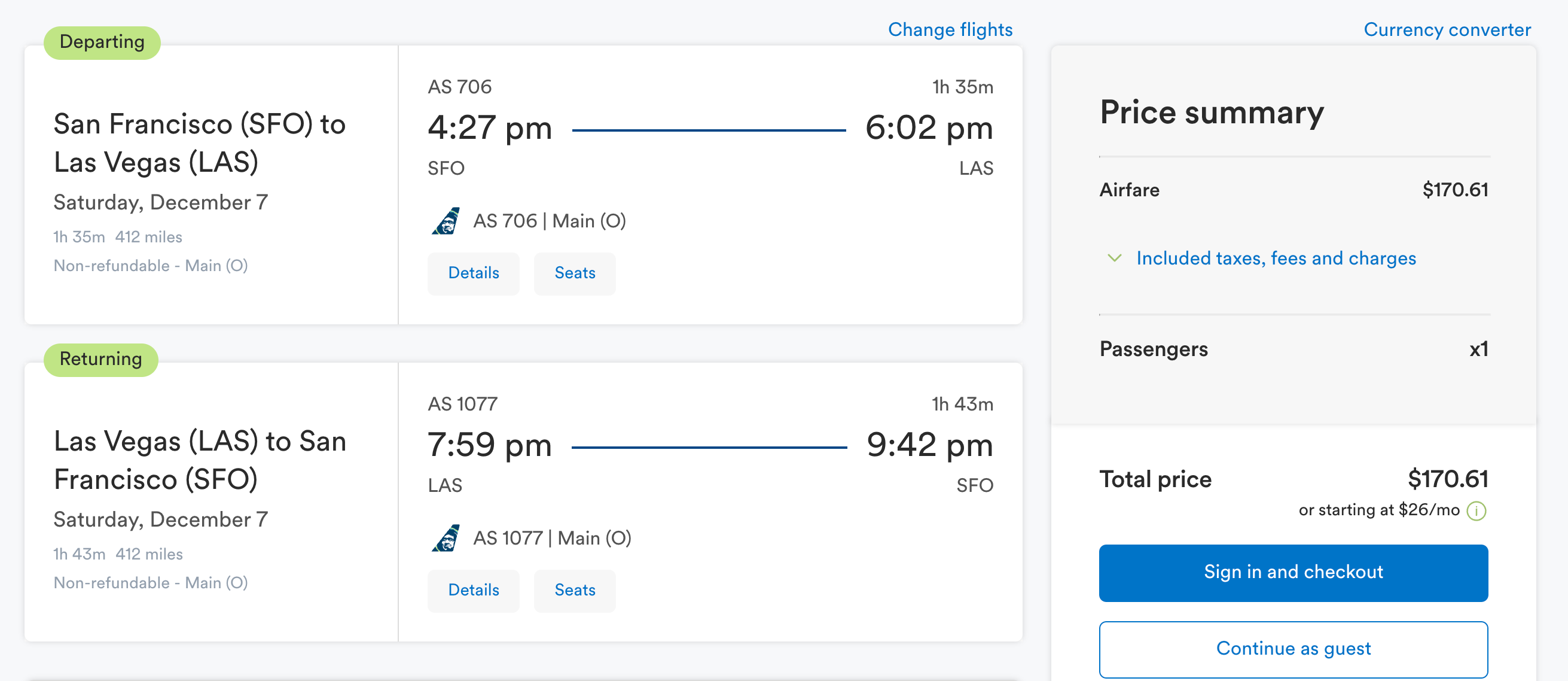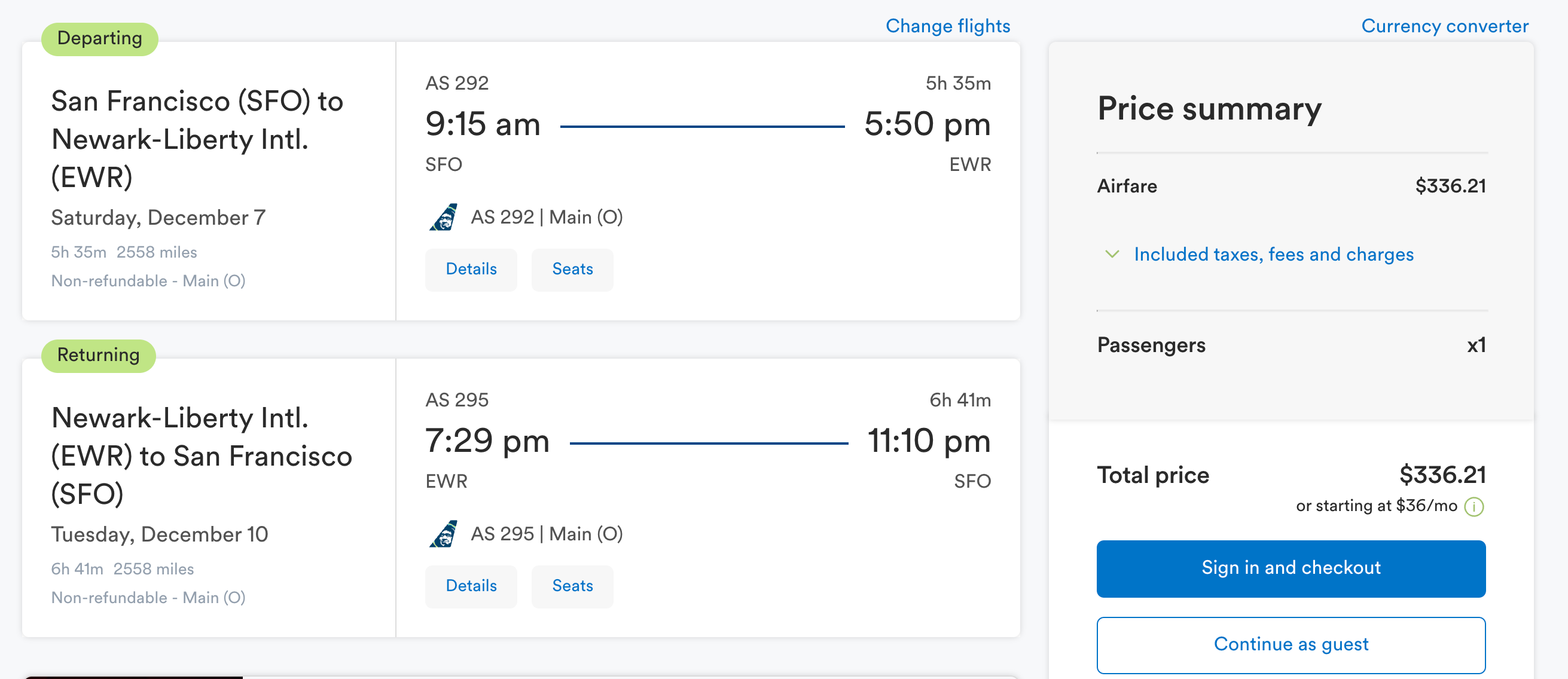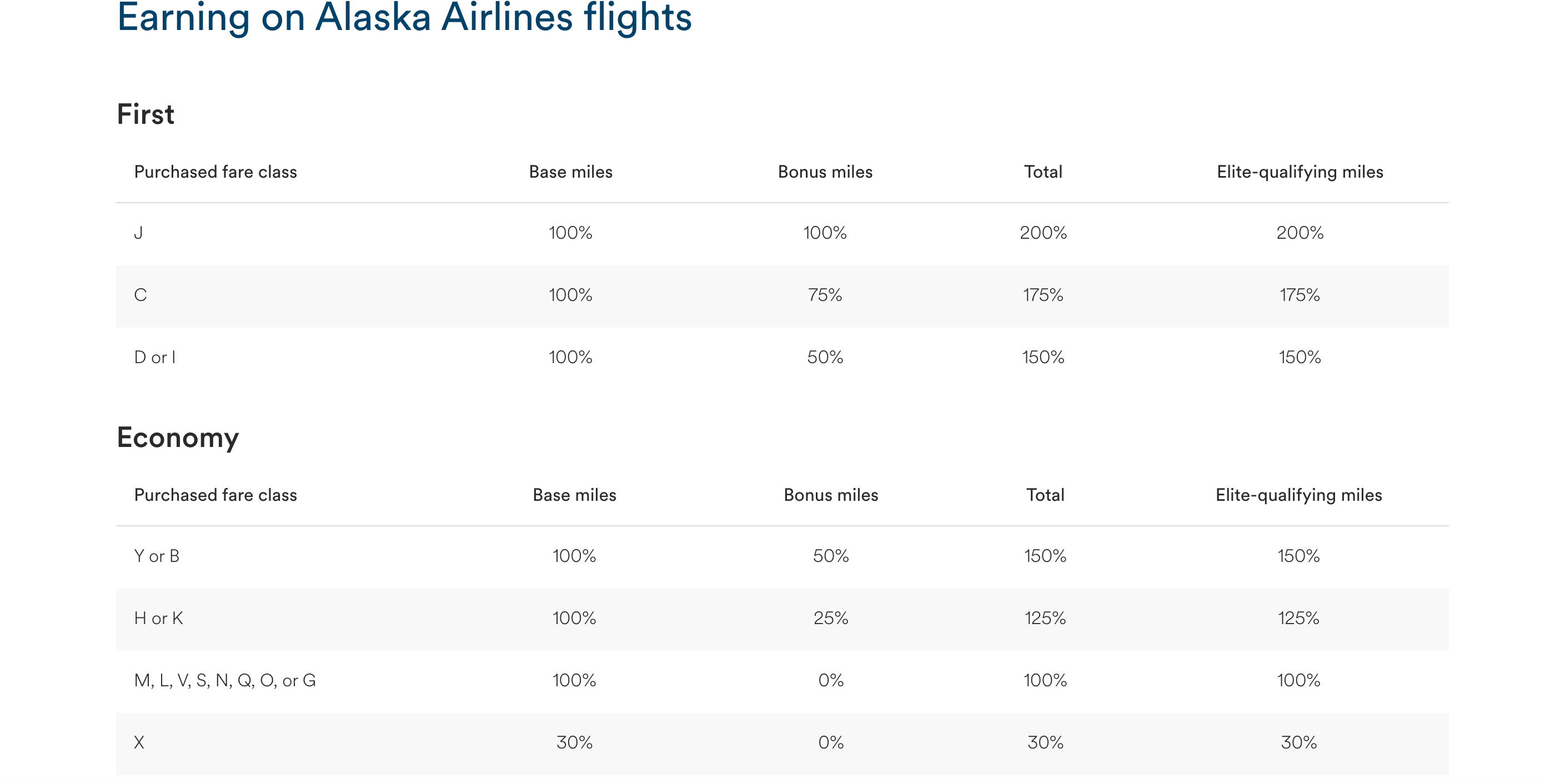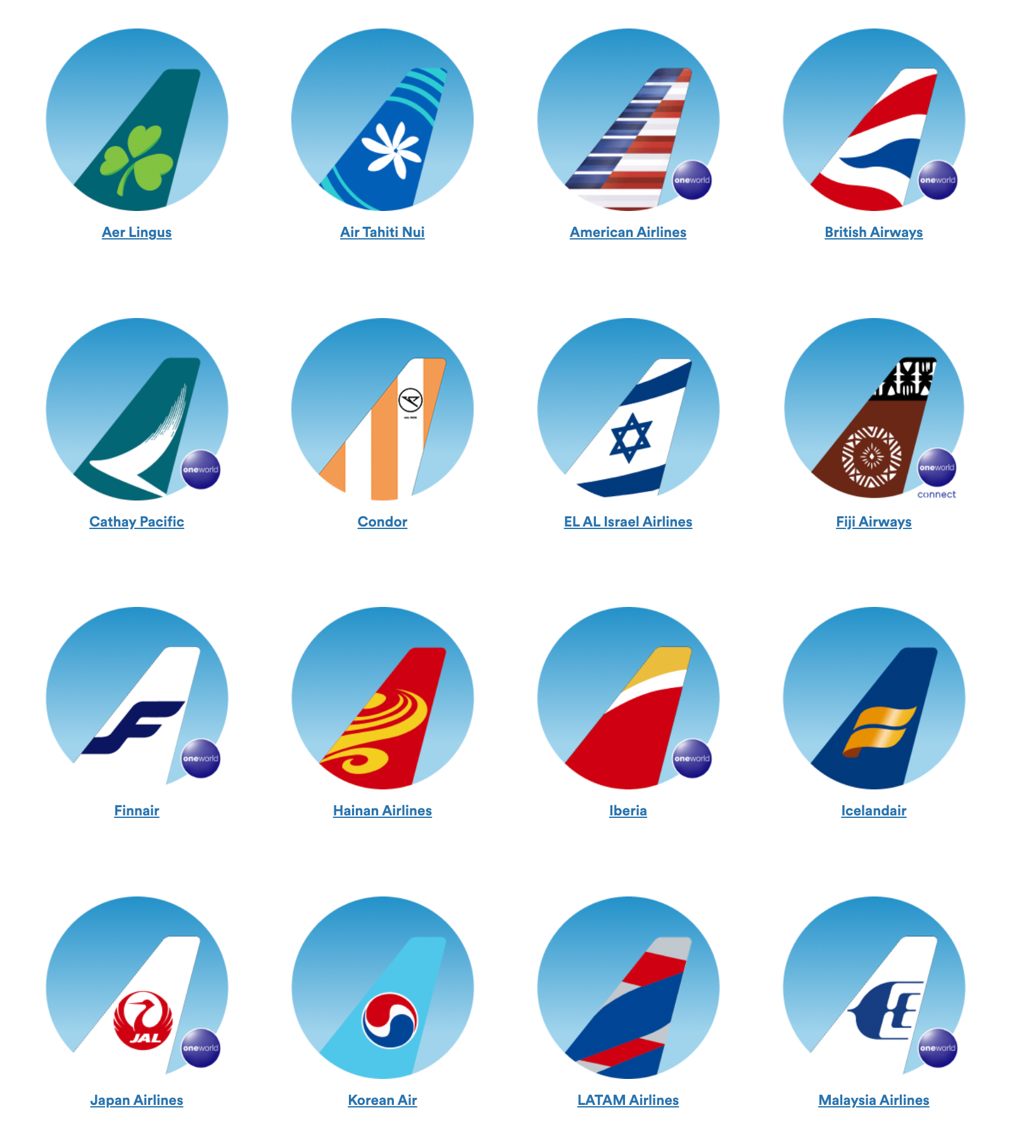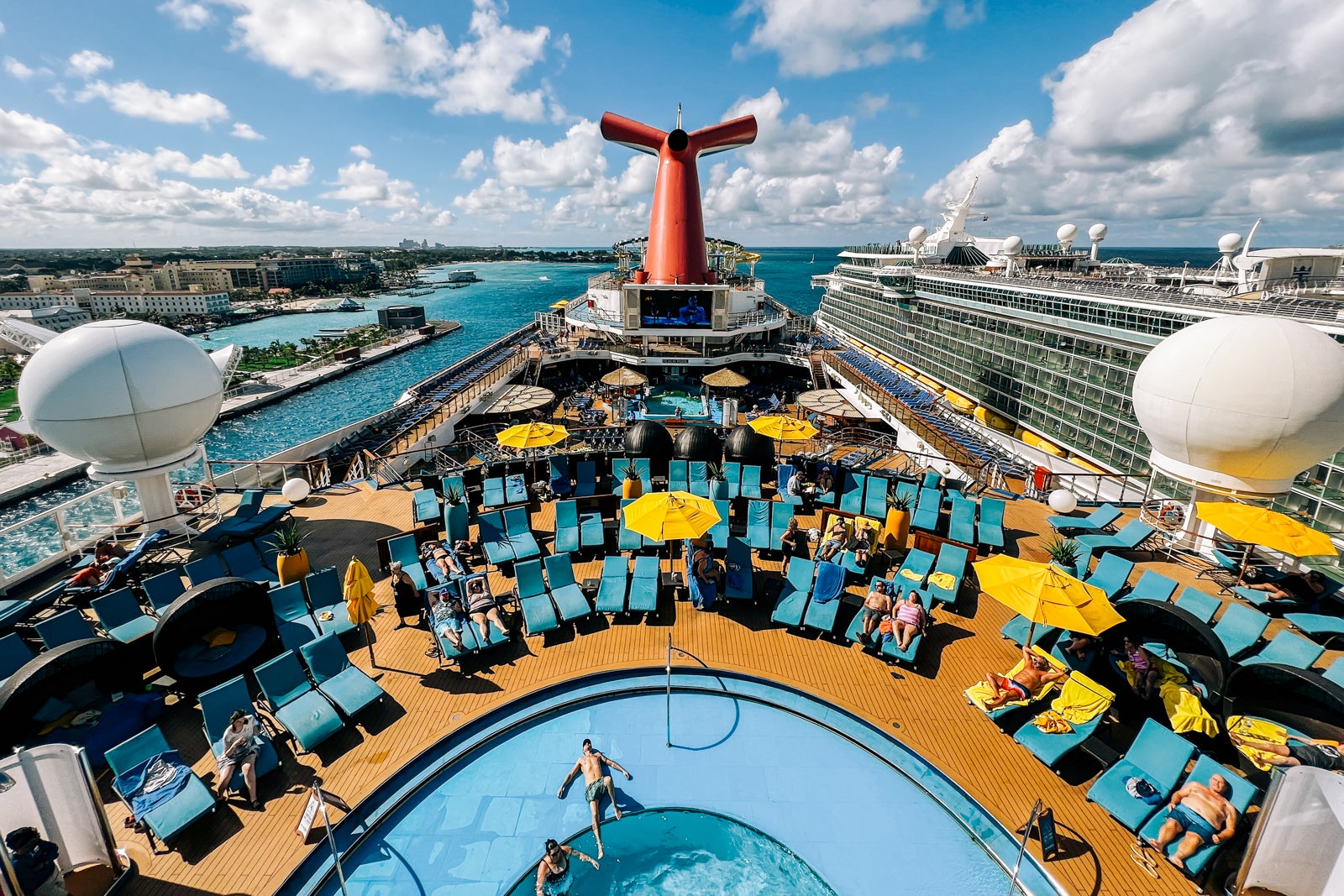Last-minute strategies for earning Alaska Mileage Plan elite status
With 2025 quickly approaching, now is the perfect time to check your Alaska Airlines Mileage Plan frequent flyer mileage balance, calculate your travel earnings for the remainder of the year and pinpoint which elite status tier you will qualify for before Dec. 31, 2024.
If you think you might not hit your goal before the cutoff, the good news is that there’s still time to earn elite qualifying miles before the end of 2024. Plus, with the recent acquisition of Hawaiian Airlines, earning elite status with Alaska Airlines may be at the forefront of your mind.
Here is what you need to know about Alaska’s MVP program, including qualification requirements, tier benefits and last-minute strategies for earning elite status with Alaska Airlines.
Related: Alaska Airlines Mileage Plan: How to earn and redeem miles
What are Alaska Airlines’ elite status tier requirements?
Alaska Airlines has four published elite status tiers, which Mileage Plan members can qualify for each calendar year by earning elite qualifying miles through flying on Alaska, Oneworld and global partner flights and spending on cobranded credit cards.
Additionally, unlike with other carriers such as United Airlines, there is no minimum number of segments that Mileage Plan members need to take each calendar year on Alaska-operated flights to secure elite status.
Here’s a look at the MVP status tier requirements:
| Status tier | Elite qualifying miles |
|---|---|
| MVP | 20,000 |
| MVP Gold | 40,000 |
| MVP Gold 75K | 75,000 |
| MVP Gold 100K | 100,000 |
To learn more about the benefits of each MVP status tier, check out our complete guide to Alaska Airlines elite status.
Related: A gamble on Alaska miles — why I applied for 2 Hawaiian Airlines cards on the same day

Daily Newsletter
Reward your inbox with the TPG Daily newsletter
Join over 700,000 readers for breaking news, in-depth guides and exclusive deals from TPG’s experts
Last-minute Alaska Airlines elite status-earning strategies
Here are a few ways to rack up more elite qualifying miles to cross the finish line to your desired elite status tier before time runs out.
Maximize your itinerary to earn elite qualifying miles
Alaska’s generous same-day flight change policy lets you request a same-day confirmed flight change at any time during the check-in window. Your new flight must depart on the same calendar day as the original departure, but you can change your route to include additional layovers.
This is useful because you will earn more elite qualifying miles on longer routes. For example, instead of flying nonstop from Ronald Reagan Washington National Airport (DCA) to Los Angeles International Airport (LAX) and earning 2,311 EQMs, you could fly from DCA to Seattle-Tacoma International Airport (SEA) and then fly to LAX for 3,282 EQMs.
Note that changing your same-day flight will cost between $25 and $50. However, if you have MVP Gold status or higher, you will receive complimentary same-day flight changes.
Alaska Airlines cobranded credit card spending
Alaska Airlines has two cobranded credit cards with Bank of America: a personal card and a business card. Aside from earning Alaska miles on everyday spending, cardholders can earn 4,000 EQMs for every $10,000 spent in 2024 (up to 20,000 EQMs total).
This means you could earn base-level MVP status purely through credit card spending. And if you are looking to reach a higher status level but do not have travel plans, you could earn 20% of the EQMs required for top-tier MVP Gold 100K status without stepping foot on a plane.
The Alaska cobranded cards are currently offering the following welcome bonuses:
Note that starting Jan. 1, 2025, Alaska cardholders will earn 1 EQM for every $3 spent on qualified purchases (up to 30,000 EQMs each year). So, if you spend $60,000 in a calendar year on your personal or business Alaska card, you will earn 20,000 EQMs, which means you’ll have qualified for MVP status just through credit card spending.
Related: Alaska Airlines unveils 4 major changes to MVP elite status
Alaska Airlines status match challenge
If you don’t already have elite status with Alaska but do have elite status with another airline, an airline status match might be your best option for attaining elite status quickly. If you qualify, you’ll receive temporary status with Alaska based on your current tier with a competitor.
Alaska has a full list of its status match partners on its website.
Then, to keep your Alaska status after the promotional 90-day period, you’ll need to fly the following number of miles on flights marketed and operated by Alaska Airlines:
- MVP: 5,000 miles
- MVP Gold: 10,000 miles
- MVP Gold 75K: 20,000 miles
Plus, following the Alaska and Hawaiian Airlines merger, loyalty program members can enjoy reciprocal elite status benefits from both carriers.
| If you have | You’ll be matched to |
|---|---|
| Alaska Airlines Mileage Plan MVP status | HawaiianMiles Pualani Gold status |
| Alaska Airlines Mileage Plan MVP Gold, MVP Gold 75K or MVP Gold 100K status | HawaiianMiles Pualani Platinum status |
| HawaiianMiles Pualani Gold status | Alaska Airlines Mileage Plan MVP status |
| HawaiianMiles Pualani Platinum status | Alaska Airlines Mileage Plan MVP Gold status |
If you don’t hold elite status with either airline, the loyalty programs are allowing members to combine their elite qualifying miles from both programs to help secure status for 2025.
| Combined EQM balance | Status you’ll get with Mileage Plan | Status you’ll get with HawaiianMiles |
|---|---|---|
| 20,000 EQMs | MVP | Pualani Gold |
| 40,000 EQMs | MVP Gold | Pualani Platinum |
| 75,000 EQMs | MVP Gold 75K | Pualani Platinum |
| 100,000 EQMs | MVP Gold 100K | Pualani Platinum |
Related: Complete guide to airline status matches and challenges
Alaska’s elite leave for new parents
Are you running behind on elite status because of a new bundle of joy that’s curtailed your travel plans lately? Alaska Airlines has an “elite leave” policy for new parents, allowing travelers to extend elite status for another year during their pregnancies or parental leaves.
To take advantage of this benefit, you must email the airline once you return with your full name, date of birth, Mileage Plan number, and proof of pregnancy or parental leave, such as a note from your doctor or employer. If approved, the airline will presume you will have qualified for elite status in the year your parental leave ends and will extend it through the following year.
Alaska Airlines mileage run scenarios
Since earning EQMs is not tied to a specific dollar amount, Mileage Plan members can earn elite status with the airline by booking cheap economy tickets on Alaska or its partners.
If you’re just a few thousand miles short of qualifying for elite status before the new year, here are a few flight route ideas to consider:
1,000 EQMs short: Alaska is generous in that, whether you have elite status or not, you can earn a minimum of 500 EQMs on flights shorter than 500 miles — except with tickets booked in the X Saver fare class, which will only earn 30% EQMs.
For example, you can spend $216 and a few hours flying on a Main Cabin fare between SEA and Spokane International Airport (GEG) for 1,000 EQMs on a Saturday.
For the same 1,000 EQMs, you can also spend about $171 to fly from San Francisco International Airport (SFO) to Las Vegas’ Harry Reid International Airport (LAS) for a long weekend.
Related: Qualify for elite status before the end of the year: Last-minute domestic flights you can book
5,000 EQMs short: The easiest way to fill this gap is to seek low-cost transcontinental flights from the West Coast to the East Coast. These routes will be more expensive than short-haul flights, but prices are usually reasonable enough to justify a quick trip to keep elite status.
Here’s a mid-December flight from San Francisco to Newark for about $336 with a Main Cabin fare, giving you a total of 5,116 EQMs earned. Remember, if you booked a Saver flight, you would only receive 30% of the base miles.
10,000-plus EQMs short: If you’re well short of your goal — and this is probably most applicable to those shooting for MVP Gold 75K status or above — you still might be able to earn 10,000 or even 20,000 EQMs this year.
The simplest way would be to book two back-to-back transcontinental flights (like in the above example) since you could complete each in a day or two and end up with around 10,000 EQMs. But that’s a lot of time flying in narrow-body jets to destinations you may have already visited.
Since you can earn additional EQMs when purchasing a higher fare class, consider booking a premium economy seat.
Check out Alaska’s 2024 earning chart below.
If you want to quickly earn a lot of EQMs at one time, consider flying with one of Alaska’s many airline partners on a cheap long-haul flight. Just know you’ll probably be flying intercontinental, so consider making a vacation of it.
However, you need to pay special attention to the earning rates on airline partners since the number of miles earned varies by partner and fare class. Check your fare class and the partner page for the operating carrier to calculate how many EQMs you’ll receive from a partner flight.
Unfortunately, it’s worth noting that airfares to Asia are high right now, even if you are connecting. So, you may be looking at more than $2,000 for a premium economy ticket on a partner airline from the West Coast of the U.S. to Asia or Australia. You need to consider whether the benefits you would receive from achieving Alaska Airlines MVP status are worth the monetary investment.
Related: The best credit cards for booking flights
Bottom line
Even though the year ends in less than two months, there’s still time to lock in your Alaska Airlines Mileage Plan MVP elite status for 2025 so you can enjoy the perks and benefits.
You should first assess your current situation in pursuit of elite status and then decide which strategy will help you achieve your goal.

